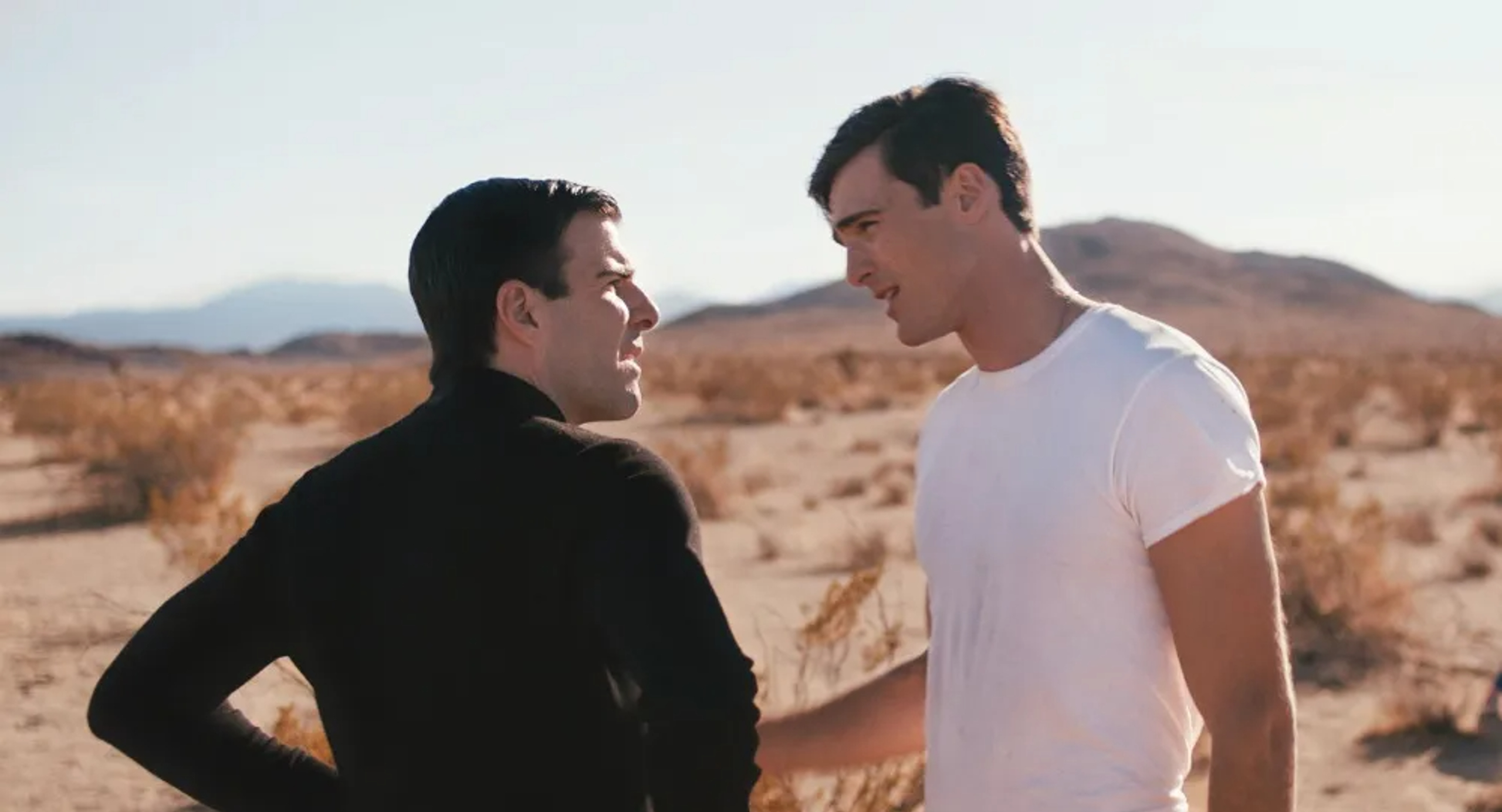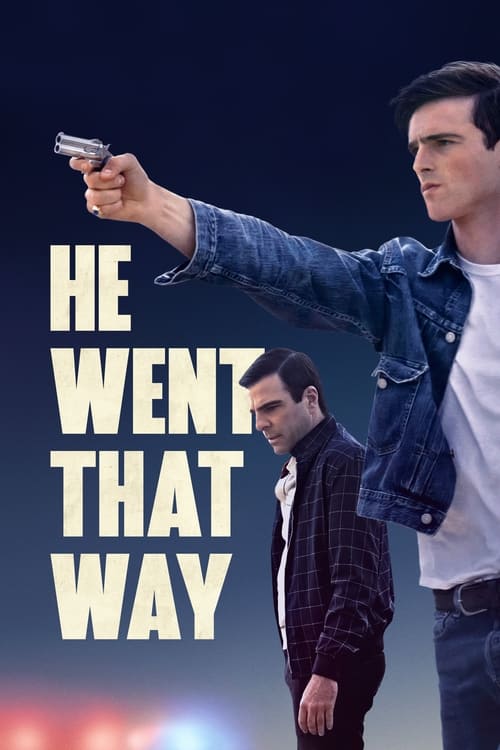He Went That Way – Film Review
Published January 8, 2024

He Went That Way, directed by Jeffrey Darling in his debut, is a film that tiptoes on the edge of a potentially compelling premise but stumbles into a pit of mediocrity. Despite the promising setup drawn from the encounter between animal trainer Dave Pitts and the infamous serial killer Larry Ranes, the movie fails to capitalize on its source material. Starring Jacob Elordi and Zachary Quinto, the film’s narrative lacks coherence, depth, and fails to leave a lasting impact.
At its core, the movie follows Jim Goodwin (Zachary Quinto), an animal trainer traveling with his chimpanzee companion, as he unwittingly offers a ride to a hitchhiker, Bobby Falls (Jacob Elordi), who reveals himself as a cunning and remorseless serial killer. The story promises tension and psychological drama but ultimately delivers a plodding and disconnected series of events that fall flat.
One of the film’s glaring flaws lies in its inability to develop its characters beyond superficial traits. Zachary Quinto’s portrayal of Jim Goodwin is unconvincing, lacking the emotional depth required to connect with the audience. Despite Quinto’s best efforts, the script offers little insight into Goodwin’s motivations or inner turmoil, leaving his character feeling hollow and forgettable.
Jacob Elordi’s portrayal of the serial killer, Bobby Falls, is equally disappointing. While attempting to exude menace and cunning, Falls comes across as a caricature of a stereotypical villain. The lack of nuance in Falls’ character undermines any potential for genuine tension or psychological intrigue, leaving the audience indifferent to his fate.
The film’s pacing is erratic, jerking the audience through sequences that lack cohesion. The narrative struggles to find a consistent rhythm, jumping haphazardly between past and present without effectively tying the pieces together. This disjointed storytelling detracts from any sense of suspense or anticipation, making it challenging to stay engaged with the unfolding events.
Jeffrey Darling’s direction, though ambitious for a debut, fails to elevate the lackluster script. The film’s visual aesthetic and cinematography are serviceable but fail to compensate for the narrative shortcomings. There’s a distinct lack of directorial finesse, resulting in a film that feels uninspired and, at times, amateurish in execution.
Furthermore, the supporting cast, including Patrick J. Adams as Saul, fails to make a significant impact. The characters are underdeveloped, serving as mere plot devices rather than contributing meaningfully to the story’s progression or depth.
Despite its attempts to build tension through suspenseful moments, He Went That Way falls prey to predictability. The film’s twists and turns are telegraphed well in advance, robbing the narrative of any genuine surprise or intrigue. As a result, the supposed thriller descends into a mundane and formulaic tale that fails to captivate or thrill its audience.
He Went That Way squanders a potentially gripping true-crime premise through disjointed storytelling, underdeveloped characters, and a lack of directorial finesse. Despite the efforts of its cast, the film struggles to maintain coherence, leaving viewers disinterested and detached from its unremarkable narrative. For those seeking a true-crime thriller that resonates and leaves a lasting impression, this film sadly misses the mark by a wide margin.
